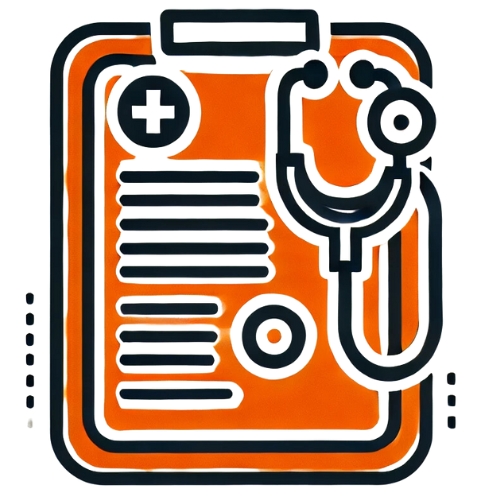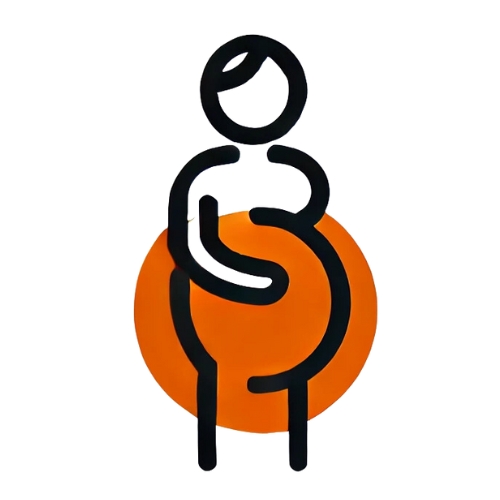
When an employee in South Africa loses their job or becomes temporarily unable to work due to circumstances like illness or pregnancy, they may face financial challenges. The Unemployment Insurance Fund (UIF) is designed to help by providing unemployment benefits to eligible employees during such periods.
Key Takeaways
- UIF Basics: The UIF offers financial assistance for unemployment, illness, maternity, and adoption under the Unemployment Insurance Act and Contributions Act.
- Claim Process: To claim, submit required documents like your ID and payslips at your local Labour Centre, and ensure regular sign-ins to maintain eligibility.
- Eligibility and Exemptions: Not all employees are required to contribute to the UIF. Only one parent can claim adoption benefits, and illness benefits are not available for conditions caused by the employee themselves.
About Arcadia Finance
Effortlessly Secure Your Loan with Arcadia Finance – No Application Fees and Access to 19 Trusted Lenders. Enjoy a seamless process with options fully compliant with South Africa’s National Credit Regulator. Tailored to meet your financial needs.
What are Unemployment Benefits?
Unemployment benefits in South Africa provide financial support to individuals who have lost their jobs involuntarily and are actively seeking new employment. Managed by the Unemployment Insurance Fund (UIF), these benefits offer temporary relief to help cover living expenses while searching for new opportunities. To be eligible for UIF benefits, individuals must have contributed to the fund during their employment, typically through automatic deductions from their monthly salary.
The UIF benefits can cover up to 60% of the claimant’s wage, depending on their salary level before unemployment. The duration of benefits typically ranges from 8 to 34 weeks, based on the length of previous employment and the contributions made to UIF. This system plays a crucial role in stabilising the economic security of workers and their families during unemployment, providing a basic level of income continuity until new employment is secured.
Explore jobs in demand in South Africa to enhance your employment prospects.

Understanding the UIF
The Unemployment Insurance Fund (UIF) in South Africa offers short-term financial assistance to workers who become unemployed or are unable to work due to reasons such as maternity, adoption, parental leave, or illness. It also supports the dependants of deceased contributors.
Legal Framework for UIF in South Africa
South Africa’s unemployment insurance system is governed by two main pieces of legislation:
- Unemployment Insurance Act, 2001 (UI Act): This act specifies the benefits available to contributors.
- Unemployment Insurance Contributions Act, 2002 (UIC Act): This act regulates the collection and imposition of UIF contributions.
Both acts were implemented on 1 April 2002.
Who Must Contribute to the UIF?
In South Africa, both employees and employers are required to contribute to the UIF. However, certain employees are exempt from contributing, including those who:
- Work for an employer for less than 24 hours a month.
- Are employed as officers or staff in the national or provincial government.
- Hold positions such as the President, Deputy President, Minister, Deputy Minister, member of the National Assembly, permanent delegate to the National Council of Provinces, Premier, member of an Executive Council, or member of a provincial legislature.
- Serve as members of municipal councils, traditional leaders, members of a provincial House of Traditional Leaders, or members of the Council of Traditional Leaders.
For those exploring additional financial aid options during unemployment, understanding the SASSA R350 grant application process can provide vital support.

How to Claim UIF in South Africa: A Step-by-Step Guide
Claiming UIF (Unemployment Insurance Fund) benefits in South Africa involves several steps. Here’s a guide on how to claim unemployment benefits, along with the necessary steps and requirements:
- Visit Your Nearest Labour Centre: Start by going to your closest Labour Centre. There, you’ll need to sign the unemployment register, indicating your intent to claim UIF benefits. You’ll be given a date for your next visit to sign the register again. This needs to be done every four weeks to confirm that you still need benefits.
- Keep Your Appointments: It’s important to return to the Labour Centre on the scheduled dates to sign the register. If you’re unable to attend due to illness, provide a doctor’s certificate. You will be issued a white card, which the UIF officer will sign each time you visit to confirm your ongoing claim.
- Receive Your Payments: If all your documentation is in order, your first payment should be made within eight weeks of registering. Subsequent payments will be made every four weeks until your benefits are exhausted. If you do not receive a payment within the expected timeframe, contact the Labour Centre with your name and ID number to inquire about the delay. Each time you receive a payment, you’ll get a slip showing the amount received and the remaining balance.
While knowing how to claim UIF is crucial, it’s equally important to stay informed about national job market conditions. South Africa Faces New Employment Setbacks offers an insightful look into recent unemployment trends and how they may affect claim processing and eligibility in the coming months.
Required Documents for Unemployment Benefits
To claim unemployment benefits, you will need to provide the following documents:
- A copy of your 13-digit bar-coded South African ID.
- Copies of your last six payslips.
- The UI19 form completed by your employer.
- A service certificate from your employer.
- Proof of registration as a work seeker.
- A fully completed registration form.
Claiming unemployment benefits? A valid South African ID is one of the key requirements. If you don’t have yours yet, check out where you can apply for a South African ID online and ensure you meet all the necessary eligibility criteria.
Obligations While Claiming UIF
- Training or Counseling: Be prepared to attend any training or career counseling sessions if requested by the UIF officer.
- Availability for Work: You must be ready to accept work if offered and actively seek employment. You’ll receive a form that needs to be signed by potential employers to confirm your job search efforts and that no positions were available.
- Collection of Payments: Collect your benefits in person on the specified date from the Labour Centre. Bring your white card and ID book each time to ensure you receive your payment.
Following these requirements and obligations will help you remain eligible for UIF benefits and ensure you continue receiving support while searching for new employment opportunities in South Africa.
If you’ve recently been retrenched and are wondering about your options, Retrenchment Cover can provide vital financial protection. While unemployment benefits offer support, having retrenchment cover ensures that you maintain a steady income flow during difficult times.

How to Claim Illness Benefits in South Africa
To apply for illness benefits in South Africa, visit the nearest Labour Centre. If you’re unable to go in person due to illness, a friend or family member can collect the necessary forms on your behalf. Once signed, the forms should be returned to the Labour Centre.
Required Documents:
- A copy of your bar-coded ID document
- Copies of your last six payslips
- A completed UI19 form from your employer
- A service certificate from your employer
- Proof of your banking details
- A statement of any payments received from your employer during your illness
- A fully completed registration form
Medical Certification: You need to submit a medical certificate (Form UF86) from your doctor. Your doctor must complete the relevant section of this form. Once completed, submit the form to the UIF claims officer at the Labour Centre. The Department of Labour will review your application and send you Form UF87. Fill out this form and have your doctor sign it before submitting it to the claims officer.
Benefit Payment Details: Illness benefits cover the period your doctor has booked you off work, excluding the first two weeks. Payments are only made for the time you have not received your regular salary from your employer. Benefits are issued via cheque and mailed to you.
Important Considerations
- You cannot claim illness benefits if your illness is caused by misconduct, or if you refuse treatment or ignore your doctor’s advice without a valid reason.
- If you have lost your job in addition to being too ill to work, inform the claims officer, as you may be eligible for unemployment benefits for the period not covered by illness benefits.
Unemployment benefits can offer short-term relief, but what about securing long-term financial stability? If you’re currently unemployed, take control of your future with actionable steps from How To Overcome Unemployment in South Africa to find sustainable job opportunities and financial independence.

How to Claim Maternity Benefits in South Africa
If you are pregnant and plan to take maternity leave, you can claim maternity benefits in South Africa. These benefits are designed to provide financial support during your leave and can be claimed for up to 17 weeks. Maternity benefits are available whether you work in the public or private sector, provided you have been contributing to the Unemployment Insurance Fund (UIF).
Claiming in Special Circumstances: If a miscarriage occurs during the third trimester or if your baby is stillborn, you are still entitled to maternity benefits. These benefits can offer important financial assistance during such a difficult time, helping you manage your expenses as you recover both physically and emotionally.
Additional Information: To maximise your benefits, start the claim process as early as possible, ideally before your maternity leave begins. You may need to provide certain documents, such as a medical certificate confirming your pregnancy, proof of your employment, and details of your UIF contributions. Ensuring all required documentation is complete will help expedite your claim process.

How to Claim Adoption Benefits in South Africa
Eligibility for Adoption Benefits: In South Africa, you can claim adoption benefits if you legally adopt a child under the age of two and take leave from work to care for them. This benefit supports new adoptive parents during the early stages of welcoming a new family member.
Application Guidelines: Only one of the adoptive parents can apply for adoption benefits. The parent who will be taking leave from work should submit the application. Make sure you have all necessary documentation and follow the prescribed procedures for applying. This includes registering with the relevant authorities and providing proof of adoption and leave from employment.
If you’re currently unemployed, claiming benefits is one option, but it’s essential to also actively search for new opportunities. Check out Where to Find a Job in South Africa for guidance on the best places to start your job hunt.

Appeals and Disputes
What to Do if Your Claim is Rejected
Receiving a rejection notice for your unemployment benefits claim can be discouraging, but it’s important to address the issue systematically. Start by carefully reviewing the rejection notice to understand the specific reasons for the decision. The notice should outline why your claim was denied, such as incomplete information, ineligibility, or problems with the documentation you provided.
Ensure that you meet all eligibility criteria for unemployment benefits. Check that you have submitted all required documentation and that it is accurate. Common reasons for rejection include missing forms or incorrect details. If there is an error or misunderstanding, contact the Unemployment Insurance Fund (UIF) directly for clarification. They can provide detailed explanations and guidance on how to resolve any issues.
If necessary, gather additional evidence. If your claim was rejected due to missing or incorrect information, compile the required documents to support your claim. Once you have the correct information, resubmit your claim or the necessary documentation as directed by the UIF. If you are unsure about the process, consider seeking professional assistance from experts who specialise in UIF claims. They can offer advice and support to help improve your chances of a successful claim.
How to Appeal a Decision
If you believe your claim was unjustly rejected, you have the right to appeal the decision. Begin by drafting a formal appeal letter. In your letter, clearly explain why you believe the decision was incorrect. Include your personal details, claim reference number, and a detailed account of the issue. Be concise and specific, outlining the reasons for your disagreement and providing evidence to support your case.
Attach any new or corrected documentation that supports your appeal. This might include additional proof of employment, corrected forms, or other relevant materials. Organise these documents to facilitate a smooth review process. Follow the UIF’s appeal procedures, which can usually be found on their official website or by contacting their offices. Pay attention to any deadlines for submitting your appeal to ensure it is considered.
After submitting your appeal, it may take some time for the UIF to process and respond. During this period, keep a record of all communications related to your appeal and monitor its status. If your appeal is unsuccessful, you may need to seek further advice from legal experts or advocacy groups. They can offer guidance on additional steps you might take to address the issue.
Knowing the average salary in South Africa can also help you gauge how benefits align with typical earnings.
Conclusion
Claiming unemployment, illness, maternity, or adoption benefits in South Africa requires following specific procedures and submitting the necessary documentation to the Unemployment Insurance Fund (UIF). To ensure a smooth process, gather all required documents, visit the nearest Labour Centre, and stay on top of your appointments. Being organised and proactive will help you secure the benefits you’re entitled to. If you encounter any issues, contact your local Labour Centre or a UIF representative for assistance.
Frequently Asked Questions
The UIF in South Africa provides short-term financial assistance to individuals who become unemployed or are unable to work due to illness, maternity, adoption, or parental leave. It also supports the dependants of deceased contributors.
In South Africa, both employees and employers are required to contribute to the UIF. However, there are exemptions for certain individuals, including those who work less than 24 hours per month and those holding specific governmental or traditional leadership roles.
To claim unemployment benefits, you need to provide several documents, including a copy of your 13-digit bar-coded South African ID, copies of your last six payslips, a completed UI19 form from your employer, a service certificate from your employer, proof of registration as a work seeker, and a fully completed registration form.
If you are too ill to visit the Labour Centre yourself, a friend or family member can collect the necessary forms on your behalf. After you sign the forms, they should be returned to the Labour Centre. You will also need to provide a medical certificate from your doctor to complete your claim.
Yes, you can still claim maternity or adoption benefits if you experience special circumstances like a miscarriage during the third trimester or a stillbirth. These benefits are designed to provide financial support during such challenging times.
Fast, uncomplicated, and trustworthy loan comparisons
At Arcadia Finance, you can compare loan offers from multiple lenders with no obligation and free of charge. Get a clear overview of your options and choose the best deal for you.
Fill out our form today to easily compare interest rates from 19 banks and find the right loan for you.


